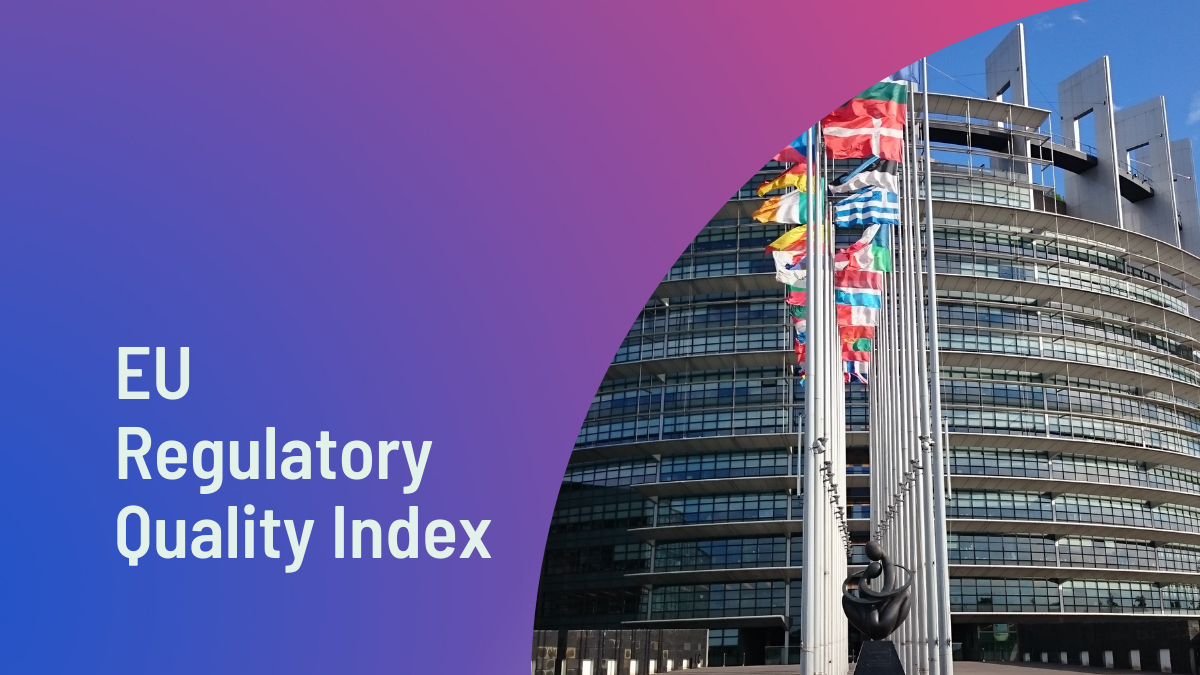
European Union Regulatory Quality Index

Laws and regulations affect the daily lives of every European citizen and every business operating in the European Union. During the last decades, the EU has become a key regulator in policy areas such as consumer protection, competition, and workplace safety. If laws and regulations are designed according to Better Regulation standards, they promote welfare and boost economic growth. On the contrary, badly designed and implemented laws hinder growth, harm the environment and put the wellbeing of citizens at risk.
The European Union Regulatory Quality Index, released today by the European Liberal Forum with the support of the Center for Liberal Studies, offers detailed information on the law-making practices in the EU.
The EU-RQI focuses on the better regulation agenda of the EU and in which degree the Directives voted the European Parliament are aligned with those principles.
The seven European Principles on Better regulation are: 1. Necessity 2. Proportionality 3. Subsidiarity 4. Transparency 5. Accountability 6. Accessibility 7. Simplicity.
The current publication evaluates the Directives of the years 2019 and 2020.
Key Findings
• The quality of 2019’s Directives, as measured by the European Union Regulatory Quality Index, is relatively high. The average score is 72/100, while the highest is 87.4/100 and the lowest 52.8/100.
• The quality of 2020’s Directives, as measured by the European Union Regulatory Quality Index, is slightly lower. The average score is 65.3/100, while the highest is 84.2/100 and the lowest 36.2/100. However, these results should be treated cautiously, given limited number of the 2020 Directives and the exceptional regulatory environment due to the unprecedented challenges caused by the covid-19 pandemic.
• Drafting remains almost exclusively in the competences and initiative of the European Commission.
• The best practices identified in the regulatory process are the high quality of the regulatory text, the alignment of the regulations with the European Commission’s Multiannual Action Plan and the respect of the Subsidiarity principle. On average, less than one Member State enacted the subsidiarity mechanism control.
• Consultation processes and stakeholders’ engagement is of high standards, with the average consultation time being 13.4 weeks in and more than 90% of Directives being open to at least one form of public consultation.
• The bigger challenges of the regulatory framework in the European Union concern the inadequate compliance and poor implementation of the transposition measures. On average, only 13 Member States transpose at least one measure, while hardly ever the Directives are accompanied by an implementation plan.
“The EU Regulatory Quality Index is a toolkit that helps us understand the best practices and the flaws of the current EU regulatory process. Although we can identify numerous best practices and great alignment with better regulation principles, we should also focus on the inadequate compliance and poor implementation of the transposition measures from the Member States, which demonstrates the fundamental challenges of EU legislation in general” said Constantinos Saravakos, Research Project Coordinator KEFiM and co-author of the study.
The study is published by the European Liberal Forum EUPF with the support of Center for Liberal Studies – Markos Dragoumis (KEFiM), co-funded by the European Parliament. Neither the European Parliament nor the European Liberal Forum EUPF are responsible for the content of this publication, or for any use that may be made of it. The views expressed herein are those of the author(s) alone.
Σχετικά άρθρα
 Επιστροφή στη λίστα
Επιστροφή στη λίστα


